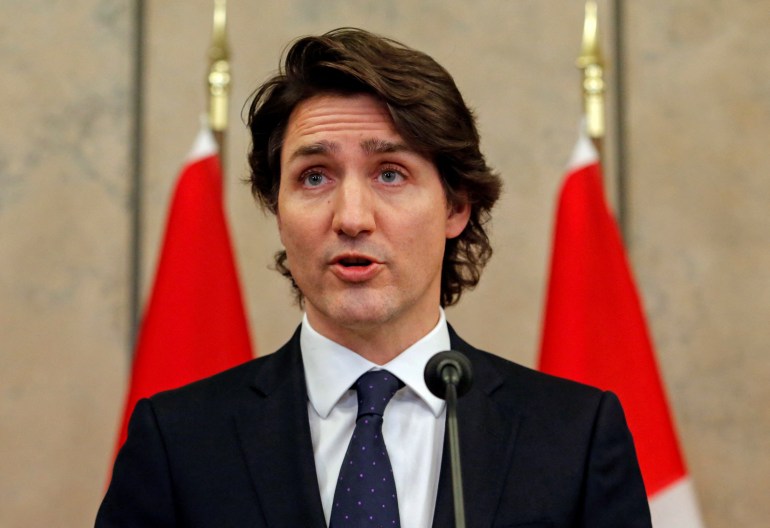Six stories you may have missed amid Russia’s attack on Ukraine
Here are some major stories you might not have seen because of the breaking news out of Russia and Ukraine.

As the Russian invasion of Ukraine continues to dominate international headlines, below is a roundup of some of the major stories you may have missed.
Earthquake strikes Papua New Guinea
A 5.2-magnitude earthquake hit the Kokopo region in Papua New Guinea on Thursday. There have been no reports of casualties or material damage so far.
According to the US Geological Survey, the earthquake’s epicentre was 136km (84.5 miles) southwest of Kokopo, at a depth of about 35km (22 miles).
Papua New Guinea is located in the so-called Ring of Fire, a region that extends along the coast of the Pacific Ocean and is characterised by high seismic and volcanic activity. This region includes 90 percent of the active volcanoes in the world.
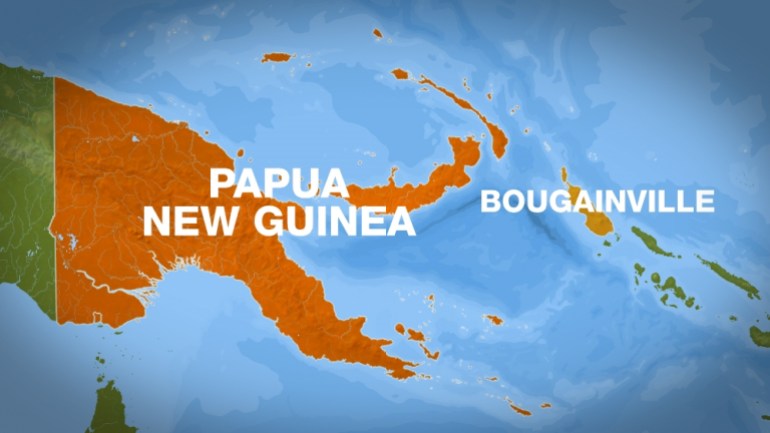
COVID-hit Queen Elizabeth postpones planned events
Queen Elizabeth has postponed two scheduled virtual audiences but the 95-year-old British monarch will continue with light duties as she recovers from COVID-19, a Buckingham Palace spokesman has said.
The events were lined up for Thursday.
The queen tested positive for the virus on Sunday when she was said to be suffering from mild cold-like symptoms. While she has cancelled a number of engagements since then, she has continued to perform other official duties, including a phone chat with Prime Minister Boris Johnson on Wednesday.

Tanzania, Mozambique launch deradicalisation counterterrorism programmes
Eastern African neighbours Tanzania and Mozambique, which have been carrying out joint counterinsurgency operations along their shared border, are now organising deradicalisation programmes using education and other means.
Authorities in both countries say armed groups like ISIL (ISIS), responsible for killing hundreds of people and displacing thousands of others, are using religion and the vulnerabilities of youth to radicalise them.
Speaking to Anadolu Agency, Nicodemus Katembo, the acting police chief of the southern Mtwara region in Tanzania, said the initiative is aimed at sensitising the population about the “dangers of terrorism”.
“We work closely with our friends in Mozambique to ensure that our young people are sufficiently educated to reject evil,” said Katembo.
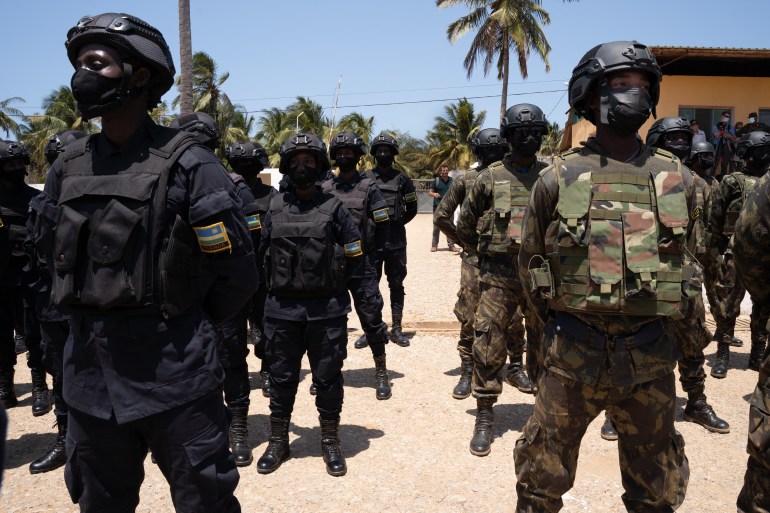
Israel rejects Palestinian accusations of ‘apartheid’
The Palestinian ambassador to the United Nations, Riyad Mansour, wearing a mask saying “End Apartheid”, has accused Israel of engaging in “apartheid”. On Wednesday, he described a number of Israeli actions as “apartheid”, including its different laws for Palestinians and Israeli settlers, and its restrictions on land where Palestinians can live and build.
In response, Israeli Ambassador Gilad Erdan accused him of regurgitating claims from the Palestinian Authority, which he said “promotes hate, incitement, violence and terror”. He also claimed the UN Human Rights Council’s Commission of Inquiry, Amnesty International and other rights groups have launched “a jihad war against the only vibrant democracy in the Middle East”.
The exchange happened at the UN Security Council’s monthly meeting on the Middle East.
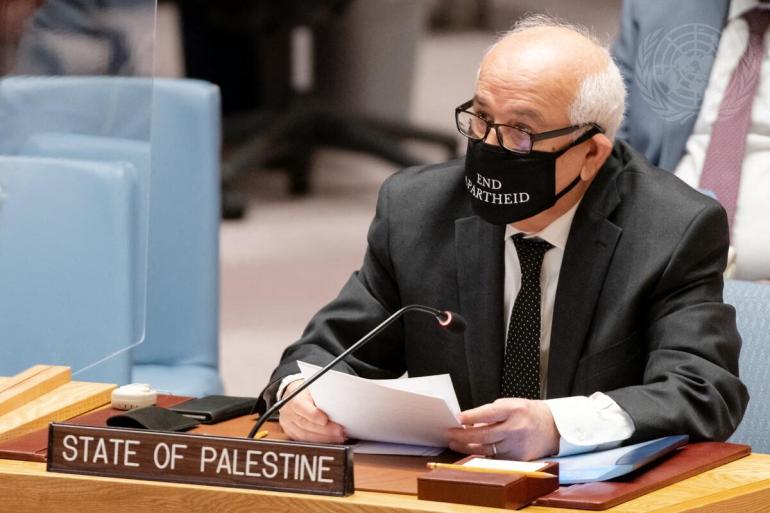
Rights advocates urge jet fuel sanctions against Myanmar
Some human rights advocates are urging governments to impose sanctions against supplying aviation fuel to Myanmar whose security forces are carrying out air attacks against opponents.
The Burma Campaign UK group has called for sanctions on Myanmar companies involved in supplying jet fuel to the military and on foreign companies.
The country faces an uprising that some experts characterise as a civil war, a fallout of peaceful protests last February. More than 1,560 civilians have been killed by the security forces, including some in air attacks, according to monitoring groups.
While Myanmar still produces oil and gas in partnerships with other Asian companies, it has no large-scale modern refineries and imports all its aviation fuel. The European Union recently imposed sanctions against the state-owned oil company, a joint venture partner in all the country’s offshore gas projects.
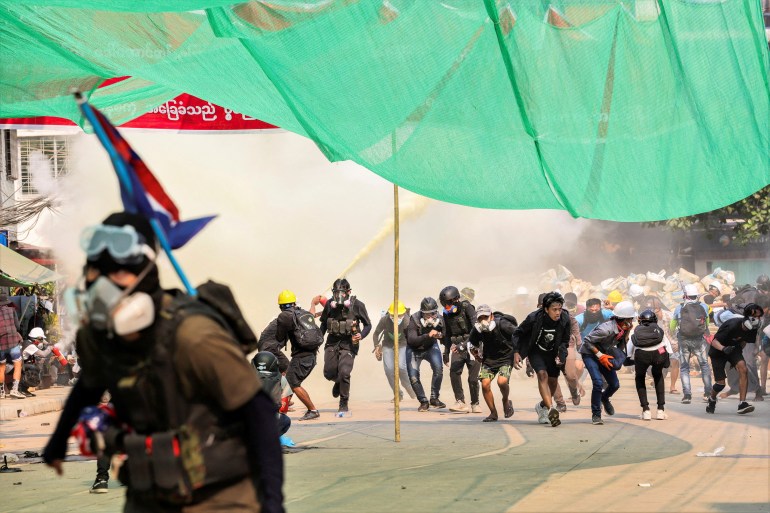
Trudeau lifts emergency order invoked to end trucker protests
Canadian Prime Minister Justin Trudeau has revoked the emergency powers he invoked about a week ago to end a weeks-long anti-government protest that paralysed the country’s capital.
“Today, after careful consideration, we’re ready to confirm that the situation is no longer an emergency,” Trudeau said during a news conference carried live on Canadian news websites.
A large group of Canadian truckers and their supporters converged on the Canadian capital late last month as part of the so-called “Freedom Convoy”. The protesters – which included some far-right convoy organisers – called for an end to all coronavirus measures in Canada and for the government to be removed, among other things.
